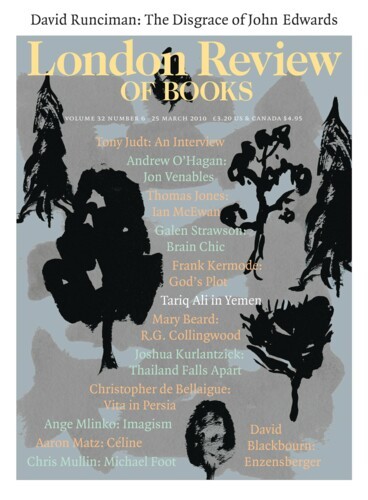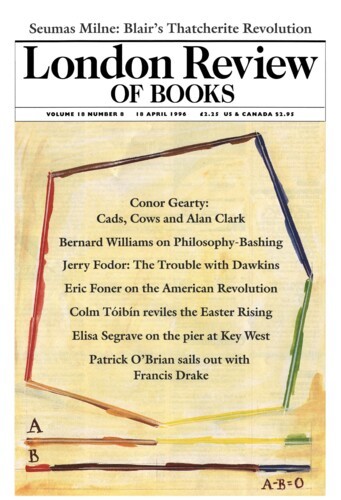Syzygy: Brain Chic
Galen Strawson, 25 March 2010
Six is a ‘perfect number’ – it’s the sum of its divisors, 3, 2 and 1 – and it’s favoured for that reason by Azarya Sheiner, a six-year-old mathematical genius who is the central attractor, but not the protagonist, of Rebecca Goldstein’s new novel, 36 Arguments for the Existence of God. Twenty-eight is the next perfect number (divisors 14, 7, 4, 2, 1),...




